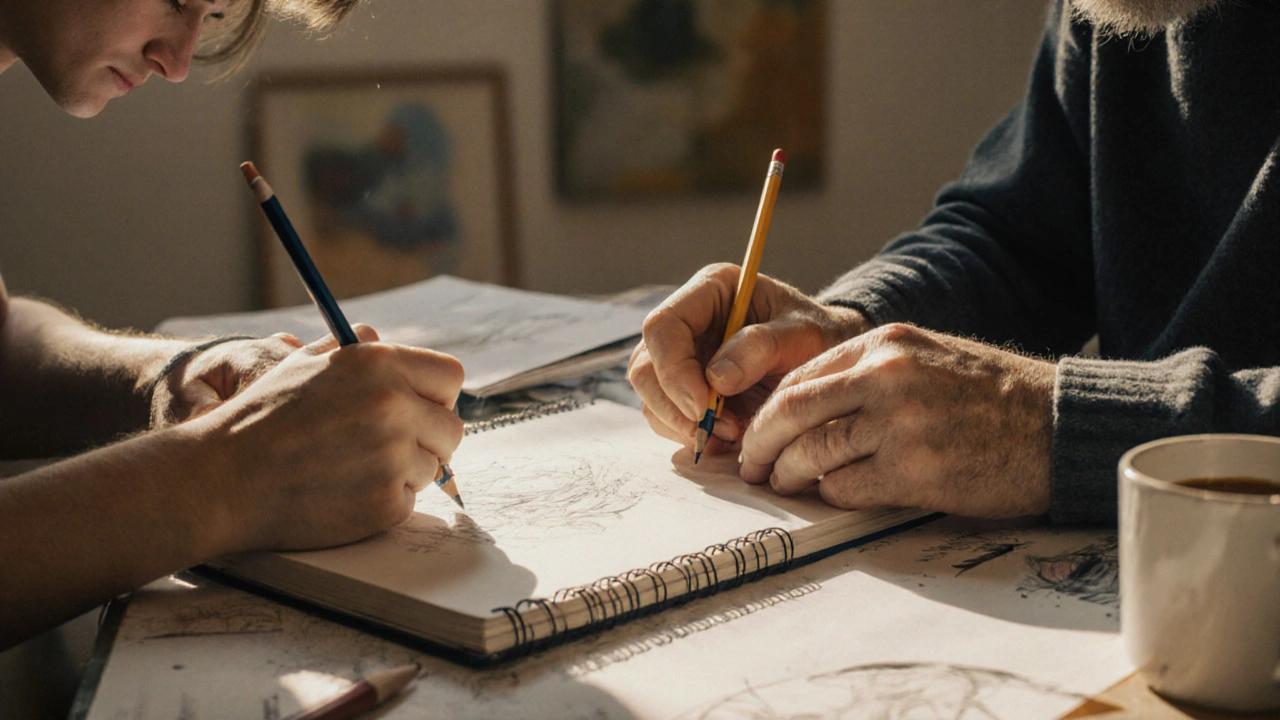Nature vs Nurture in Art: How Biology and Environment Shape Creativity
When we talk about nature vs nurture in art, the debate over whether artistic talent comes from innate ability or learned experience. It’s not just about whether someone is born with a gift—it’s about how their world shapes that gift into something visible, meaningful, and lasting. Some artists seem to pick up a brush and paint like they’ve done it their whole life. Others spend years struggling before something clicks. What’s really going on?
The truth? It’s both. artistic development, the process by which someone grows into an artist doesn’t happen in a vacuum. A person might have a natural sensitivity to color or rhythm—something that shows up early in childhood—but without exposure to materials, mentors, or even just permission to create, that spark fades. On the flip side, someone with no obvious early talent can become a powerful artist through relentless practice, supportive teachers, or even trauma that forces them to express what words can’t. creativity and environment, how surroundings like family, culture, and access to resources influence creative output is just as important as raw ability. Look at street artists who never went to art school but turned alley walls into galleries. Or painters raised in poverty who used charcoal from burnt wood because they couldn’t afford paint.
Artists don’t just make art—they respond to the world around them. A child raised in a home full of music will hear rhythm differently. Someone who grew up in the countryside will paint trees and light in ways city kids never learn. Even the tools you have access to change what you make. That’s why art psychology, the study of how the mind, emotion, and experience drive artistic choices matters. It’s not enough to say someone is "talented." You have to ask: What did they see? Who encouraged them? What did they lose? What did they fight to keep?
This collection of posts doesn’t just show you how to make prints or price portraits—it shows you how real artists think, struggle, and grow. You’ll find stories of people who turned limited resources into powerful work, who learned technique through trial and error, who found their voice not because they were born with it, but because they kept showing up. Whether you’re just starting out or you’ve been painting for decades, understanding how nature and nurture shape art helps you see your own path more clearly. The next time you look at a piece of art, ask not just "How was this made?" but "What shaped the person who made it?"
